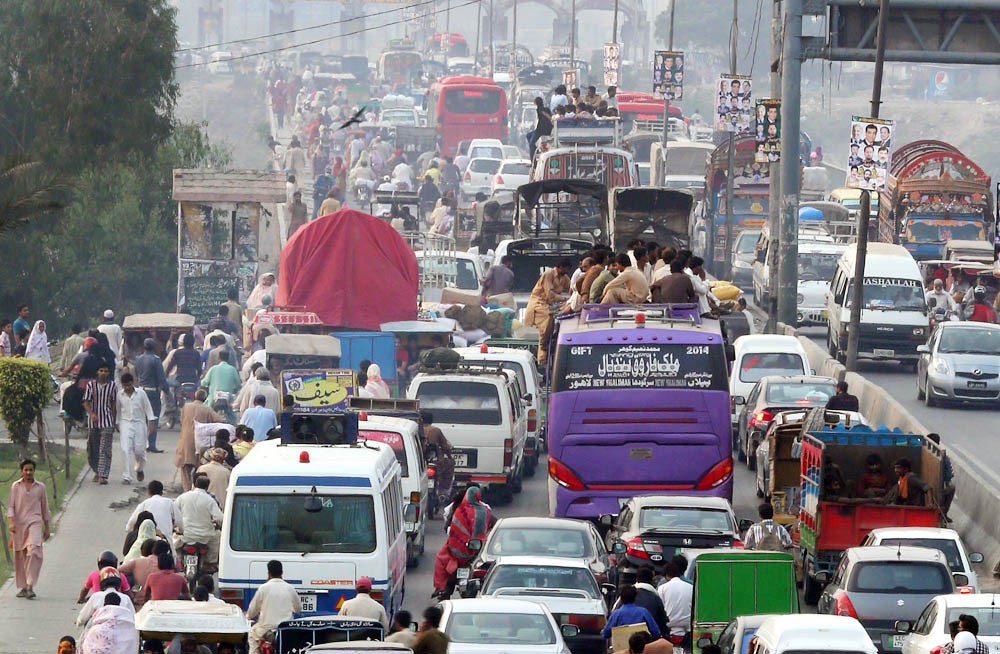
If there is chaos on the roads on a daily basis, the administration must be doing something wrong. Or, it might not be doing anything about it at all

It was thirty minutes since my car hadn’t moved an inch. I looked to my right and saw an elderly man staring down at me with a grave expression. I turned my head to the left just to find a young boy carrying his two sisters on motorbike switching the engine on and off, again and again, and then I looked at my father who was driving our car, looking all miserable and tired.
This wasn’t the first time we had been caught in traffic mess in recent days. It’s more of a daily routine now.
About a year ago, I wrote about the construction of roads and bridges in the main areas of Lahore and how it was disturbing the lives of the people who either had their educational institutions or offices near these construction sites.
I still remember the days when construction was going on. Everything around was so chaotic. I couldn’t get to my university on time and my father was almost always as late to his work. Gigantic machinery was always on the roads, and sand, cement and other construction material would smear our faces and clothes until we got inside our safe havens.
That was a difficult time and we would hate the chaos surrounding our university from the core of our hearts. But deep down inside, we knew it would be over soon and it would all be worth it.
And it happened. Signal free roads had come up; there were flyovers and underpasses that made it appear so much better. They looked beautiful and smooth, and most importantly, we could get to our university within minutes. But we didn’t know our joy was short-lived.
Not much time has passed since the scene has changed for us all over again, and I have this huge urge to pick up my pen and write it all out.
As beautiful and clean as they appear to be, signal-free roads, flyovers and underpasses have changed the landscape of Lahore. Yet, the chaotic mass of vehicles still manages to gather and block almost every major road of the city in peak hours. Traffic jams are still the order of the day. Even the Sherpao Bridge that leads to the cantonment area remains clogged in the evenings. And the story of Jail Road, the Mall and other roads is no different.
A few days back, a woman working as a nurse for one of the private hospitals situated at the Jail Road got hit by a car while she was crossing the much-touted ‘signal-free corridor.’ Later, she succumbed to injuries.
One thing that a close relative of the deceased stressed upon while telling her tragic story was that the signal-free road is too dangerous to cross, especially for the students who have their colleges and universities situated on either side of it.
As for the private hospitals on the signal-free Jail Rd, parking is a major issue. The hospitals do not have their own parkings which forces the patients and staff to pull their vehicles on the sides of the roads, causing chaos.
Daily, we see numerous ambulances and rescue service vans trapped in the traffic. While they must reach their destinations where they are required urgently, in order to save lives, their sirens usually push no one to make room for them.
To make matters worse, small-time mobile and purse snatchers have reared their ugly heads in the city; they often take advantage of such traffic jams, and rob people at gun point.
I do not intend to blame the government or the administration every time I am late for my class, or a car is wrongly parked at a public place, or a speeding car hits a person on the road, or an ambulance cannot make it past the snarlup. But I do believe that if incidents like these starts to happen on a daily basis, then the administration must be doing something wrong. Or, it might not be doing anything about it at all.